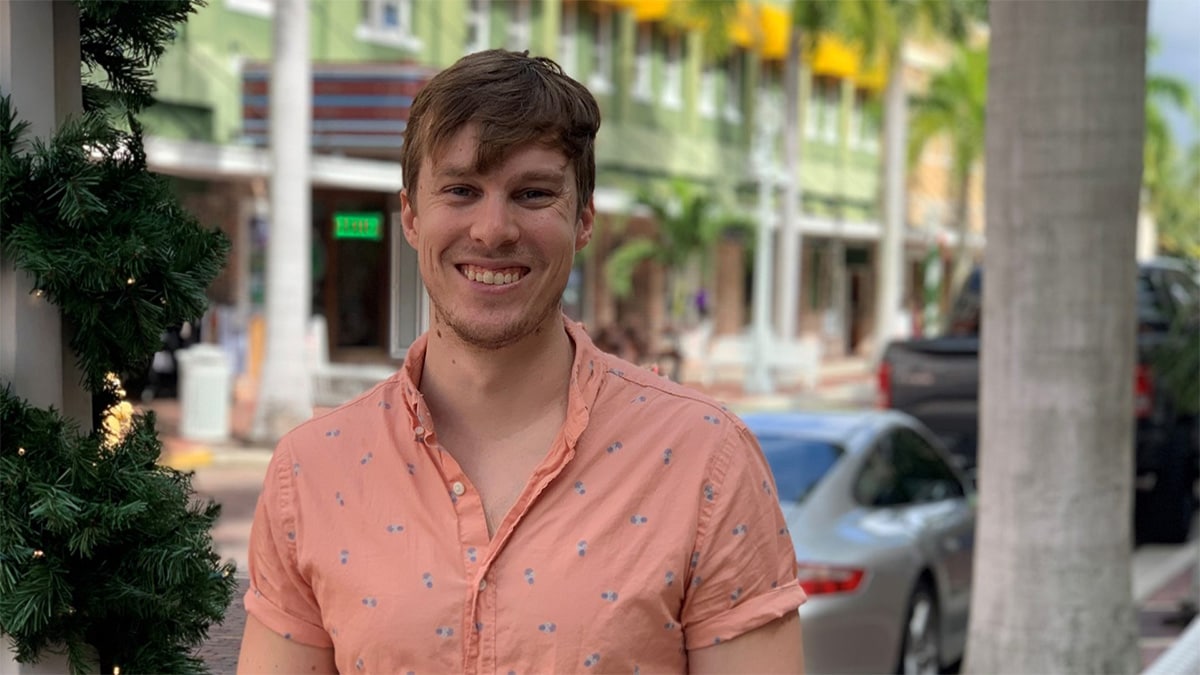At a glance
With no family history of hemophilia, Eric's diagnosis was completely unexpected. Now, his diagnosis gives him purpose and a community.

Eric's story
Each person in the hemophilia community has a unique story to tell, as highlighted by the stories shared on CDC's website and others (like the Hemophilia Federation of America). I owe much of my happiness and many of my life's successes to this community and its past and present members.
Every person with hemophilia has some photos from their youth that will still send shivers down their spines. Everyone likes to brag about the biggest bruise they've ever had... When I was a child, I had one the size of a melon. But you'll find that as you get older, you learn to grow with your illness and to manage it. This was certainly the case for me.
My hemophilia diagnosis at birth was a complete surprise, just like an estimated one third of all other people with hemophilia with no previous family history of the disorder. A spontaneous mutation (change) in my mother's genes caused her to carry the gene for hemophilia, which she passed down to me.
I have come to believe that so much of the long-lasting health and happiness of a person with a bleeding disorder comes down to the care they received in their first few years of life. My parents took my diagnosis in stride and adopted every new approach to treatment they could find. The early 1990s marked a new era in the treatment of hemophilia. (For more information on CDC's current work on blood safety, please visit our website.) My parents made sure I had my treatment infused (injected) every 2 days like clockwork.
I'm afraid at this point my story gets rather boring. ... And isn't that what those of us with chronic illnesses are seeking? To be able to move from panicked management, to adhering to treatment, to careful monitoring, and finally to be able to push the disorder to the back of our mind.
Thankfully, I didn't worry much about my disorder during my teen and college years. I started to self-infuse (self-inject) my treatment, began to order my own medicine, and religiously adhered to the treatment schedule my parents had stressed the importance of for so long. My hemophilia began to fade into the background of my life, but I never hid the fact that I have hemophilia. In fact, I was proud of this thing that made me unique. But as time went on, I formed an identity outside of my disorder. I started lifting weights, I learned how to play the drums, I started traveling and moved to new cities and states. I found friends with diverse interests and spent way too much time playing fantasy football.
But then something changed, as I think often does for those of us who search for purpose and direction after college. I think there's a supernatural tug to return to those spaces that you were born into, that make you who you are. The supernatural tug, for me, turned out to be an opportunity to intern at a nonprofit organization that supports and educates the bleeding disorders community. On a whim and a raised eyebrow, I threw my hat into the ring. Five years, a couple of different positions, and many different email signatures later, I'm happy to say I'm more involved than ever in the bleeding disorders community and still working at that same organization. Through this work, I've discovered a passion for looking after my community. I've recently started a graduate program in public health, in no small part due to the fantastic experiences I've had in the community and my desire to find more meaningful ways to contribute.
At the risk of sounding like one of those upbeat commercials, I feel very at peace and happy with my hemophilia these days. While hemophilia is a heavy burden that will occasionally throw a curveball at me, it's afforded me direction and passion in my life. I feel privileged to be in a place where my disorder is managed as well as it is, and now in a place to return some of my good fortune.
CDC thanks Eric for sharing this story.
